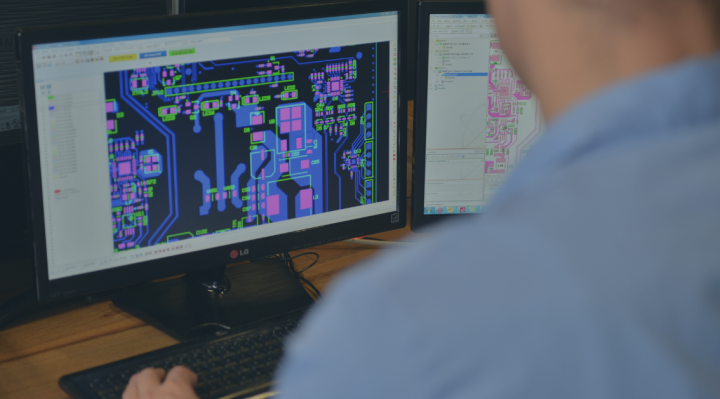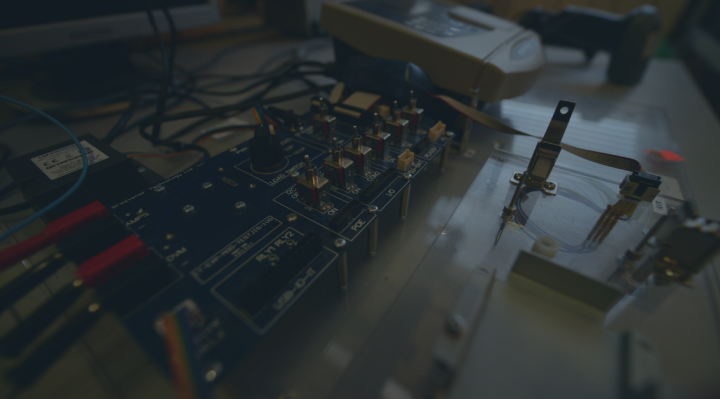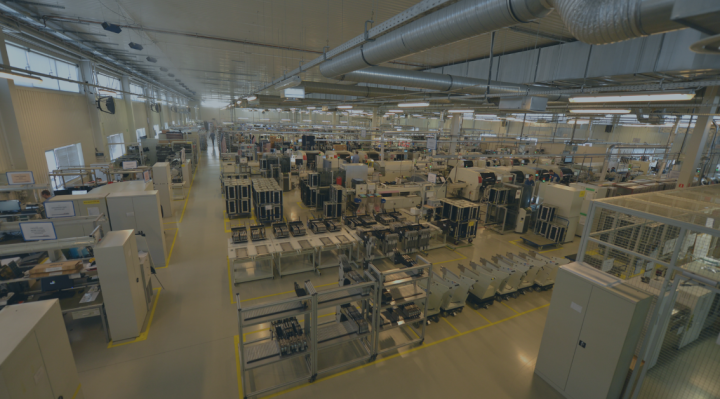There are many elements to ensure production success. Being limited only to having modern production machines and mastering their basic operation is far too little to claim that an enterprise is capable of supplying high-quality products while ensuring an adequate profitability of the enterprise. The purchase of machines is a cost for which it is enough to have adequate financial resources. Electronics manufacturing is no different from any other well-managed manufacturing sector in this respect. However, if this is not enough, what else then makes up the efficiency and quality of production?
Effective management in production
The efficiency and quality of production is an inseparable combination of the ability to efficiently manage production itself and all production-related processes, as well as cost supervision. For the company, the development of appropriate procedures in these areas is a continuous process, in which both previous experience and flexible response to constant changes play equally important role – concerning the development of technology, customer needs, changing trends and challenges related to the materials and components market, without the smooth availability of which the PCBA assembly would not be possible.
Organisational management
The electronics manufacturing in production-related management requires having IT solutions tailored to your needs. Their integration, allowing data to flow between different systems, enables organization to operate more efficiently. It is also an important element towards the introduction of Production 4.0 standards – integrated systems allow you to organize processes, minimize the risk of errors, while ensuring a consistent flow of information throughout the organisation.
In a machine environment where various technologies are combined, with a large number of production processes, it is equally important to take care of the material. The materials and components used are some of the most expensive elements in the manufacture of a product, accounting for approximately 60-80% of its value. Therefore, taking care of the material and managing it well is very often the key to success. Using an ERP system with an MRP II loop on a daily basis serves this purpose.
MRP II
MRP II management methodology (Manufacturing Ressources Planning) is a method of comprehensively planning the use of all production resources available in the company, such as materials, components, process lines, personnel, financial resources, warehouses, etc. A well-thought-out implementation of MRP II allows for increasing transparency, smooth central management, and introduces organizational order by systematizing the processes taking place in the company.
Thanks to the application of the ERP MRP II system, the company has very precise real-time information about materials - their current state, when to order the next batches. The system calculates the necessary quantities and suggests planning subsequent orders for a given assortment, thus improving the functioning of the supply chain. An additional advantage of such a solution is the cost savings due to the reduction of a team of people to control material management, and the fact that the data is collected in one place, rather than in scattered Excel files where several people can interfere in independently, causing chaos that is not conducive to the fluidity that EMS's PCBA assembly needs to ensure continuity of supply chain to its customers.
At the same time, it should be remembered that not every ERP system includes MRP II solutions. The trade name ERP system is sometimes misleading, as there are plenty of inventory applications on the market that do not have an MRP II loop implemented and are therefore not as useful for companies with complex production and logistics processes.
Production management
Production management, which has a direct impact on electronics manufacturing – its quality and efficiency – also emphasises system solutions aimed at maximising the centralisation of production management and control, as well as error management, in order to minimise potential losses at each stage.
Using a MES system in the organisation serves this purpose (Manufacturing Execution System). MES is an integrated IT system that, using information technology, software, electronic devices and automation components, enables the effective collection of real-time information directly from the production stations and its transfer to the business area. This improves efficiency, increases productivity and enhances communication not only between man and machine, but also between man and man (e.g. by logging their activity in the system). This allows us to react immediately to any unwanted phenomena, e.g. unplanned downtime, failure, drop in productivity; and the electronics manufacturing runs more smoothly.
The system also controls the environmental conditions to which PCBA assembly is sensitive. Temperature and humidity levels in the areas where materials are stored and production is performed are constantly monitored and automatically controlled, eliminating the risk of damage to individual components. The system sends alerts to engineers about errors that occur, so those problems can be addressed quickly.
Traceability
A good MES system has a traceability function. By implementing traceability, PCBA assembly becomes as transparent as possible. It is possible to trace not only the history of a single piece of product (scanned at each stage), but in an expanded version, traceability is also the possibility of linking information about each material that is mounted on a given product – which component, from which manufacturer batch number it was placed on which board and when it was produced. Traceability makes it possible to quickly eliminate errors if, for example, a batch of components is found to be faulty. In such a case, it is possible to determine where and in which piece of product it was found and eliminate only those pieces and not all of them. Traceability in such a case is important because the manufacturer does not have to withdraw all products from the market, only specific pieces.
Efficiently conducted electronics manufacturing means a company that combines technological solutions – advanced, integrated systems – with organizational competences, both in terms of human resources and the adopted system solutions. It is the combination of technology and management skills, based also on experience gained (e.g. analysis of “past errors”), that allows such an organisation to achieve the desired quality for itself and its customers. A well-organised and managed company with integrated systems can give much more to the customer than modern machines alone. This ensures that the customer gets a good, low-cost, high-quality product within the set deadline.







